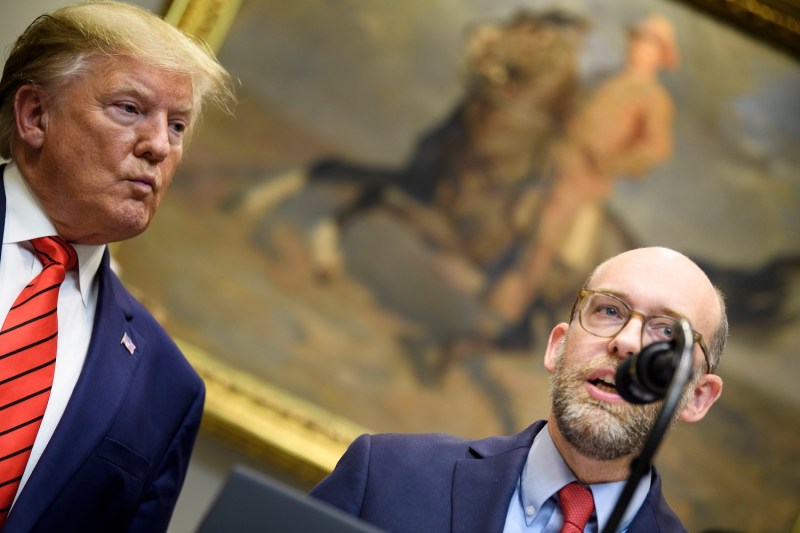UPDATE: Russell Vought, the director of the Office of Management and Budget (OMB), is making headlines today as he consolidates power over federal spending and regulations, reshaping the government’s landscape. His aggressive approach, part of the controversial Project 2025, signals a significant shift in how federal operations will be conducted under Donald Trump’s administration.
Vought’s strategy is not merely administrative; it’s a calculated dismantling of previous governmental structures. As outlined by analysts, he is leveraging existing processes to sidestep traditional checks and balances, much like his ally Steve Bannon envisioned. This shift has sparked urgent discussions among federal workers and political analysts about the future of governance in the U.S.
Vought’s rise to power is rooted in the OMB’s historical significance, which dates back to the 1980s under President Ronald Reagan. The agency has evolved from a modest budget office into a formidable force capable of influencing nearly every aspect of federal governance. Vought’s manipulation of this power poses an existential threat to the legacies of past administrations, including those of Franklin Roosevelt, Lyndon Johnson, Barack Obama, and Joe Biden.
In a recent analysis, experts highlighted how Vought is exploiting loopholes and ambiguities within federal rules to exert control. “What it lacks in cachet, it makes up for in the vast influence it wields across the government,” noted political commentator Andy Kroll in a recent profile. This stark reality raises alarms about the OMB’s unchecked authority and the potential repercussions for federal oversight.
As Vought implements drastic changes, the implications for federal workers are immediate and profound. Many fear job security as regulations are rolled back and spending is curtailed. The urgency of the situation is palpable, with employees across various agencies bracing for a potential overhaul of their operational frameworks.
Looking ahead, the trajectory of Vought’s influence raises critical questions about the future of federal governance. Will his actions lead to a permanent restructuring of the administrative state? What safeguards can be put in place to prevent future abuse of power? The answers remain uncertain, but as Vought continues to execute his vision, the call for stronger checks on executive authority intensifies.
The implications of Vought’s actions extend beyond political circles; they resonate deeply with American citizens who rely on federal services and protections. Critics argue that the dismantling of regulations could have lasting negative effects on public welfare and the environment.
As this situation develops, all eyes will be on Vought and the OMB. The coming weeks are critical as stakeholders respond to these changes, and the potential for significant backlash looms large. The urgency of this moment cannot be overstated; the future of American governance hangs in the balance.



































































